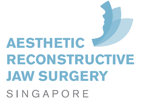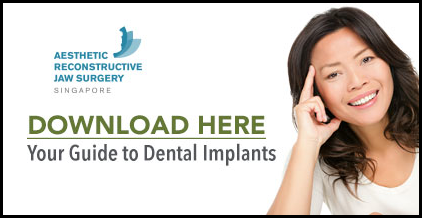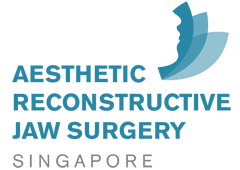Share this
What qualification to look for in a dentist for dental implants?
on April 3, 2017
 There are about 2000 dentists in Singapore and the majority does not provide dental implant services. This is because of the relative novelty of implant dentistry, becoming mainstream only in the last twenty years or so, and that most dental schools do not teach it as part of its core curriculum in the undergraduate program. How can a patient identify which dentist to choose for dental implants?
There are about 2000 dentists in Singapore and the majority does not provide dental implant services. This is because of the relative novelty of implant dentistry, becoming mainstream only in the last twenty years or so, and that most dental schools do not teach it as part of its core curriculum in the undergraduate program. How can a patient identify which dentist to choose for dental implants?
Displayable qualifications
Looking at the websites, Yellow Pages and signboards of dental clinics, you can see the names of dentists and some acronyms after their names. These acronyms are the abbreviation of certain qualifications that are approved for display by dentists in their professional stationery and signboards. The criteria for approval of such qualifications are very stringent and non-compliance with the standards set will be dealt with disciplinary action by the regulatory authority, namely the Singapore Dental Council (SDC).
One may wonder why displaying some acronyms behind a dentist’s name is such a big deal. Historically, in Singapore, the public has shown that it has more trust and confidence in a dentist who has more qualifications displayed after his name. However, the public has no idea what these qualifications are and whether they infer any additional skill or knowledge that is relevant to their presenting problem.
In the past, most additional qualifications are specialist qualifications i.e. they are obtained through a full time period of specialty training in a recognized university. However, as dental knowledge becomes more extensive, non-specialty training programs are introduced by various organizations, some reputable, others less so. Many of these organizations confer these qualifications to the dentists who undergo their prescribed program and one of the benefits offered is a set of post-nominals that goes with the dentist’s name.
Criteria for Displayable Qualifications
The SDC mandates that only qualifications that reflect a quantum leap in knowledge above that of a basic dental degree can be allowed for display after a dentist’s name. Qualifications granted by any organization, including major universities and colleges that do not meet this set of criteria will not be allowed for display. The intention is not to demean any conferring organization but the objective of an organization in awarding a qualification is often different from the SDC’s objective in allowing qualifications for display.
While having an SDC-approved post-graduated qualification attached to a dentist’s name implies some additional skill and knowledge, it does not necessarily mean that he will be better at providing dental implant treatment. Those qualifications may be related to a different field of dentistry. Conversely, not having an implant-related qualification displayed does not imply that the dentist does not have the necessary skill to perform dental implantology. Implant dentistry is not a specialty in Singapore nor anywhere else. There are several groups of people performing the service and looking at the abbreviated qualifications after a dentist’s name is not always the best way to judge.
Implant dentistry qualifications
Although there is no "Specialist in Implant Dentistry", there are implant dentistry-related qualifications such as graduate diplomas and master’s degrees. Those that fulfill the SDC’s criteria have been approved for display but others that did not were denied. As such, if a dentist has an approved implant dentistry related qualification, a patient can be confident that that dentist has at least undergone a recognized formal program that has resulted in a quantum leap of knowledge and skill that a general dentist who has not attained it may not possess. Currently, qualifications recognized by the Singapore Dental Council are
- Gradudate Diploma in Dental Implantology of NUS – GDDI (NUS)
- Master of Science in Implant Dentistry of University of London - MSc(Implant Dentistry)(London)
- Master of Science in Implant Dentistry of University of Warwick – MSc(Implant Dentistry)(Warwick) that were awarded before 2012.
Specialties related to Implant Dentistry
As implant dentistry as an organized branch of dentistry is relatively new, most of the teaching faculties of such implant courses hail from various established dental specialties and some general dentists. The specialties that deal with implant dentistry are Oral Maxillofacial Surgery, Periodontology, and Prosthodontics. In Singapore, these specialties mandates a minimum of three years of full-time training in a teaching hospital leading to a Master’s degree, followed by a minimum of two years of post-Master’s training and passing a national exit examination. Oral Maxillofacial Surgeons and Periodontists undertake the surgical aspects while Prosthodontists are in charge of restoration of the crowns on the implants. Identifying specialists is easy as their title spells out their specialties e.g. Oral Maxillofacial Surgeon or Specialist in Oral Maxillofacial Surgery. In addition, most specialists display the following qualifications:
- Master of Dental Surgery /Master of Science (MDS/MSc – specialty)
- Fellow of the Academy of Medicine, Singapore (FAMS- specialty)
General dentists with special interest in implant dentistry
Some general dentists are also accomplished in the field of implant dentistry. In fact, locally, implant dentistry was embraced by general dentists before specialists. Thirty years ago, when I was a student, the undergraduate curriculum had only one dental implant lecture and it was given by a general dentist. He has no implant-related post-graduate qualification appended to his name but is widely respected within the profession then and now.
Ultimately, qualifications that a dentist displays after his name does not tell the whole story. Word of mouth recommendations amongst friends, referrals from other dentists, and actually going for a consultation visit to see for yourself is the best way to choose the most appropriate implant dentist.
Share this
- Jaw Surgery (93)
- Dental Implants Singapore (90)
- Orthognathic Surgery (48)
- Replacing Missing Teeth (26)
- Missing Teeth Options (23)
- Underbite (23)
- Bone Grafting (21)
- Costs (18)
- Facial Aesthetics (18)
- Aesthetics (17)
- dental implants (16)
- corrective jaw surgery (15)
- BOTOX (11)
- Dermal Fillers (11)
- Wisdom teeth (10)
- Fixed Implant Dentures (8)
- Loose Dentures Singapore (6)
- Medisave (6)
- sleep apnea (6)
- Braces (5)
- Dental Pain (5)
- Dentures in Singapore (5)
- Loose Teeth (5)
- Tooth Extraction (5)
- jaw deformities (5)
- bimax (4)
- bone graft (4)
- maxillomandibular advancement (4)
- all-on-4 (3)
- bimaxillary protrusion (3)
- chin implant (3)
- facial asymmetry (3)
- full mouth dental implants (3)
- genioplasty (3)
- immediate implant (3)
- removal of an integrated dental implant (3)
- third molars (3)
- wisdom tooth surgery (3)
- My Dentures Don't Fit (2)
- VME (2)
- bone graft healing (2)
- distraction osteogenesis (2)
- medical tourism (2)
- obstructive sleep apnea (2)
- orthodontics (2)
- plastic surgery (2)
- CT guided dental implants (1)
- Double jaw surgery (1)
- Invisalign (1)
- Periodontal Disease (1)
- Permanent Dentures Singapore (1)
- before and after photos (1)
- facial trauma (1)
- fractured dental implant (1)
- oral appliance therapy (1)
- root canal treatment (1)
- veneers (1)
- vertical maxillary excess (1)
- September 2019 (2)
- July 2019 (2)
- May 2019 (2)
- August 2018 (1)
- October 2017 (1)
- September 2017 (2)
- August 2017 (1)
- June 2017 (2)
- May 2017 (4)
- April 2017 (1)
- March 2017 (1)
- February 2017 (3)
- January 2017 (3)
- December 2016 (1)
- November 2016 (2)
- October 2016 (4)
- September 2016 (9)
- August 2016 (5)
- July 2016 (11)
- June 2016 (14)
- May 2016 (6)
- April 2016 (2)
- March 2016 (1)
- January 2016 (7)
- December 2015 (10)
- November 2015 (4)
- October 2015 (9)
- September 2015 (7)
- August 2015 (1)
- July 2015 (6)
- June 2015 (3)
- May 2015 (7)
- April 2015 (5)
- March 2015 (8)
- January 2015 (5)
- December 2014 (7)
- November 2014 (7)
- October 2014 (6)
- September 2014 (8)
- August 2014 (5)
- July 2014 (7)
- June 2014 (8)
- May 2014 (9)
- April 2014 (10)
- March 2014 (6)
- February 2014 (8)
- January 2014 (3)
Subscribe by email
Email subscription




No Comments Yet
Let us know what you think